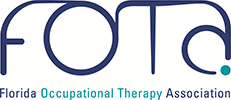INTEGRATING HEALTH LITERACY IN EXPERIENTIAL LEARNING
Shirish Lala, EdD(c), MHS, OTR/L Academic Fieldwork Coordinator Daytona State College
The pursuit of acquiring literacy is intentional, purposeful, and deictic, and subject to change based on the contextual demands (Leu, Kinzer, Coiro, Castek, & Henry, 2013). Literacy can be loosely defined as a construct that provides an individual with the ability to read, write, and integrate information across a broad range of platforms in order to identify, recognize, and implement knowledge for the purpose of personal,social, or financial gain. The U.S. Department of Health and Human Services describes health literacy (HL) as “the degree to which individuals have the capacity to obtain, process, and understand basic health information and services needed to make appropriate health decisions” (National Network of Libraries of Medicine [NNLM], 2011). However, according to the Centers for Disease Control, low HL is a serious public health issue affecting nine out of every ten adults (Centers for Disease Control [CDC], 2018a). At least 50% of the adults without high school education are at risk for experiencing severe health crises including medication errors, increased hospital visits, higher mortality, and greater health expenditure as compared to those with adequate HL levels (Brach et al., 2012).
